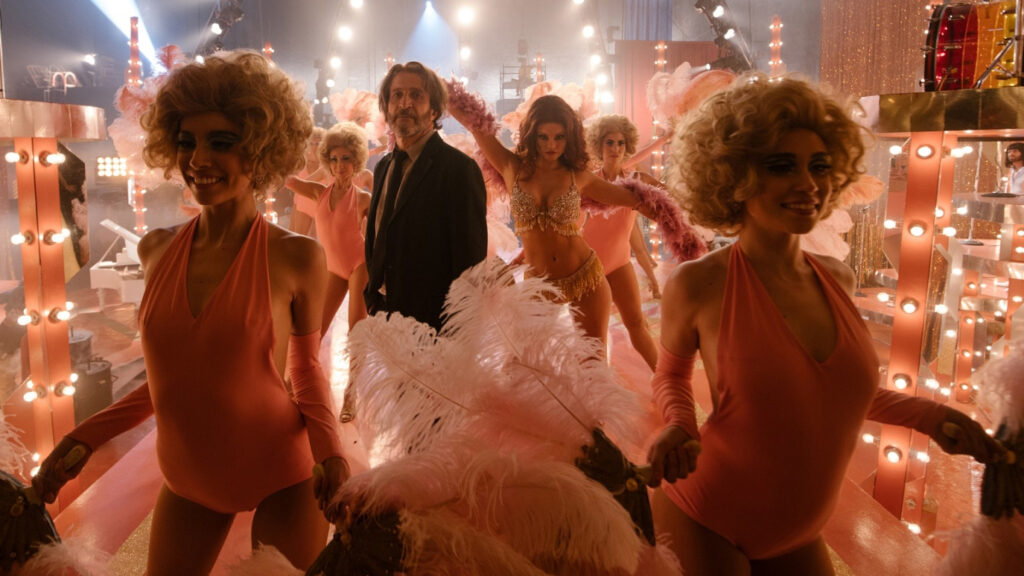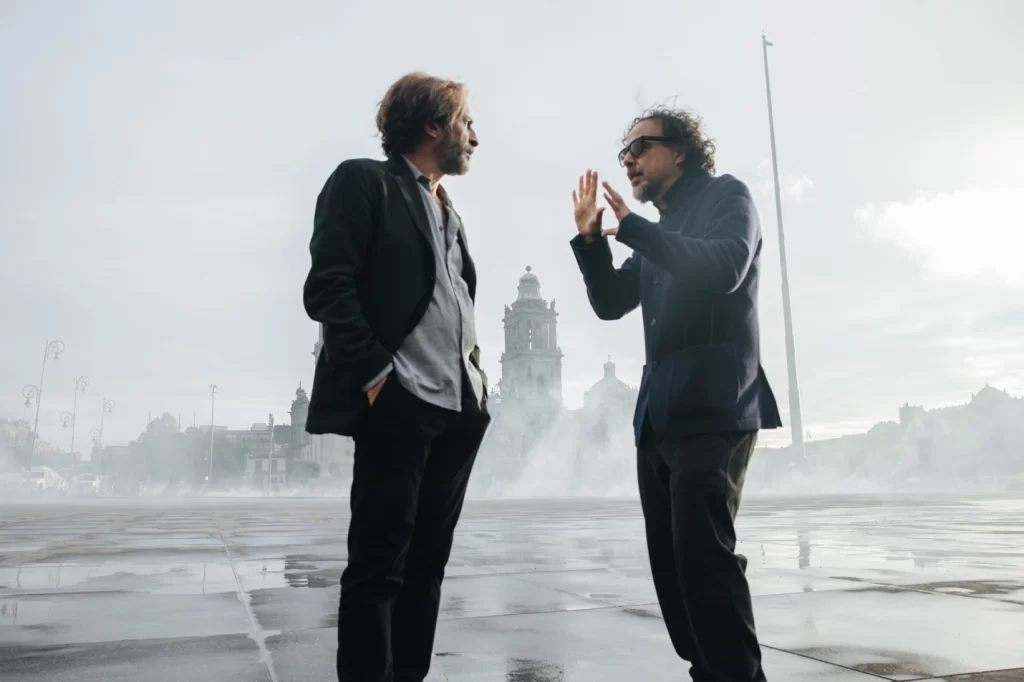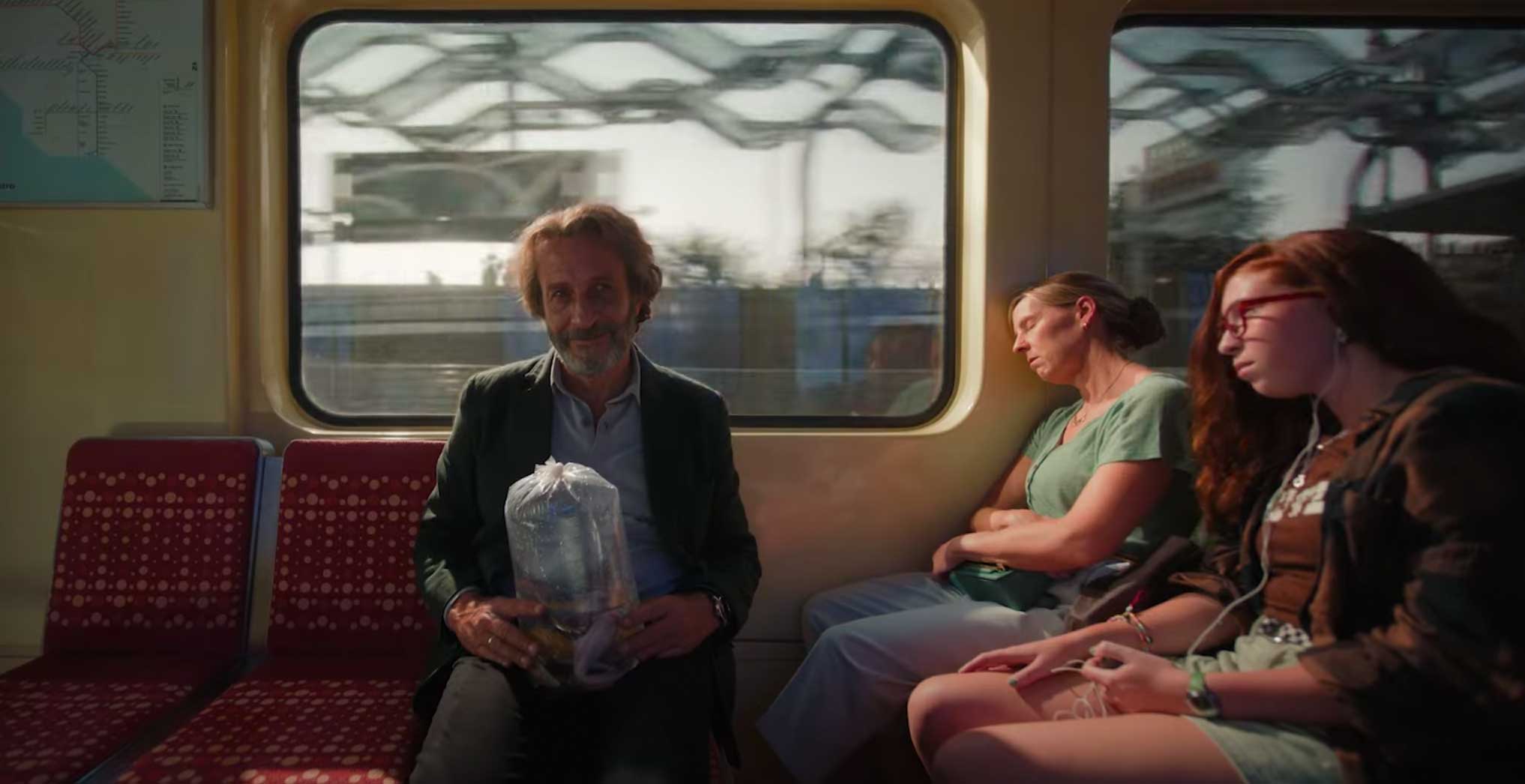When I interviewed Omar Levya for the glorious movie Windfall, he let slip that Revenant director Alejandro González Iñárritu was working on a movie called Bardo. “What’s a Bardo Omar?” I think I asked. “I really don’t know.” was Omar’s honest response, and he was in the movie! hahaha. But now that “Bardo, False Chronicle of a Handful of Truths” is finally out, I get it. Totally get it. This movie is an eclectic shotgun blast of insanity, hyper-realism, and fantasy… melded with an autobiography? And I mean that in the most startlingly positive and supportive sort of way! Trust me. If you are unfamiliar with Bardo, you can check it out on Netflix.
But this discussion of Bardo will mainly be focused just trying to piece together what happened and how it might actually resolve to some sort of sane interpretation. At a later date I’ll post a new interview with Omar Levya (who I am now formally listed as his bff on his IMDB page)… we’ve already started talking about Bardo together and I can’t wait to share the conversation with you.
Bardo, False Chronicle of a Handful of Truths Discussed
Silverio Gama (Daniel Giménez Cacho) happens to be a documentary filmmaker. An extraordinarily famous Mexican, living in Los Angeles with his wife and son. His latest film, that is basically a autobiographical documentary is entitled, False Chronicle of a Handful of Truths… see what Iñárritu did there? He is telegraphing his punches. Silverio is Iñárritu. Similarly, Iñárritu left Mexico and moved to Los Angeles with his family while he was in his 30s. And today, he is watching his own kids grow up in a country that isn’t their native homeland. Back to Silverio… who actually feels caught between two places, disconnected from both.
Silverio moves through life in sort of a half-dream state, half-awake, askew, constantly flipping back and forth between these surreal realities. A great example of this is when he meets with the American ambassador to Mexico at the Chapultepec Castle. He simultaneously moves through the modern castle while also witnessing the 1847 Battle that took place in that same location. But soon he begins to suspect that he is about to receive an award simply to ease a tense situation between Mexico and the United States. (The tensions between the two countries isn’t just about the border chaos, but also due to the fact that Amazon is attempting to purchase the Mexican state of Baja California.) But ultimately? He really does feel guilty about migrating to the United States when so many of his compatriots are left behind and cannot leave.
Silverio and family go to a party that is being thrown for him, and he connects with his siblings and family whom he hasn’t seen in a while. Things don’t go well when the host of the talk show tears his work apart… causing Silverio to launch into ad hominem attacks on the host. Soon after he imagines that he is reconciling with his now dead father and mother. And later he sees piles of Mexican corpses as a result of organized crime kidnapping and killing individuals.
Silverio and family will soon to return to Los Angeles, but prior to that he learns that Camila, his beloved daughter, is choosing to quit her job in LA and move back to Mexico. When the family heads back to LA, they are accosted by a border patrol cop who doesn’t agree that Silverio can call California his home, even though he’s been living here for close to 20 years. It’s an interesting scene for numerous reasons (most of which I will get into when Omar (the actor playing the border cop) and I discuss the movie together.)

Ending of Bardo, False Chronicle of a Handful of Truths Explained
When Lorenzo reminds Silverio about the time when his axolotls died, Silverio gets him several as a surprise. And when on the LA Metro, heading back from the pet store (which is a flash back) Silverio has a stroke and is left without help for a number of hours. In a coma, Silverio is struggling to process his life… and the complications therein. This is the sum of the movie that we have watched up to this point. Right? So, Bardo can only start to make sense in this light. Nothing in the movie is truthful… it’s all filtered through the brain of a person undergoing a stroke… and dying. And as a result, Camila receives the award Silverio was going to receive… in his absence. After, she and the family sit by his bed, talking, TV playing, playing music… and all of it has been filtering down into his consciousness as he struggles to make sense of his life. The two have melded together, and have affected his memories of his past experiences.
Cut to a void desert entrenched in his mind, Silverio and his dead father and mother and others reunite. And we can see that Silverio ignores the members of his family that are actually still alive. He sees another version of himself and then his doppelgänger moves off by himself… flying through the desert as the movie began.
Silverio’s Conscience and the Movie Bardo
I really can’t speak to this conflict that we see Silverio struggling with throughout the course of the movie Bardo… I’ve not struggled with this conflict. But it’s abundantly clear that the entirety of the movie is dealing with Silverio’s decision to bail on Mexico as his home (not residence, home… recall the scene with the border guard) and the resulting guilt that has marred his conscious. Which should play out more in my own conscience too… I’ve visited so many other places, and the United States has worked so hard to guard its doors and keep other nationalities out. I’ll leave it at that. But I really should have much more life-debt-guilt at being generally okay with this situation.

Does Silverio Die at the End of the Movie Bardo?
Probably if you just finished watching Bardo, the only thing you care about in this entire movie is the ending… or the beginning, as the case might be. The question on the table is this, Does Silverio die at the end of the movie Bardo? If you recall how the movie began, and ended, you’ll remember that you are watching someone (most probably Silverio) running along the desert, and leaping. He’d eventually come back to the ground… only to leap again. This time he’s going higher. And higher. Until he doesn’t come back down again.
So, what do you think? Does Bardo die? Well, I think the biggest tip for us is how we only spent time with the dead members of his family, and not the living. And I also think that the ending is tipping the audience to the fact that Bardo was dumping his baggage. Whether Silverio is dead or not is an interesting question. I personally do believe he has passed away. But I think that the ending of Bardo could also indicate that Bardo has let go of the need to be correct. But I promise to dive deep into the ins and outs of this movie with Omar once I release the fantastic interview.
My Own Thoughts on Bardo, False Chronicle of a Handful of Truths
While watching it at first, I was so very lost. But, as the movie comes together and played itself out, even without the ending I was starting to make sense of it. Groking it somewhat. The guilt shown through and the conflict that warred within its scenes was pretty easy to understand. But when the ending dropped, and the surrealism was aligned and explained? I REALLY liked it. Like, yeah, I was all in. Obviously it’s not a topic that I can fully appreciate or understand… but it conveyed the feeling and stress of this emotion and this sort of life-debtness so clearly that I still understood the conflict at play here. And it really was a lovely film in every way. Sort of setup in the editorial structure of Adrian Lyne’s Jacob’s Ladder, which made it even more enchanting. And think of it from that light… a dying man’s last thoughts warring within him about heaven and hell? It even takes it up a whole ‘nother notch. But maybe that’s just me. Regardless, I absolutely adored this movie.
But… can I state the really obvious here… Silverio is Iñárritu. And Iñárritu is Silverio… right? I mean, this is obvious to everyone? (They even look like each other. Can’t be a coincidence.) Iñárritu similarly moved from Mexico to California. Iñárritu is one of the most heralded movie producers in the world today… let alone from Mexico. He is a cherished movie maker. And to see the personal conflict and personal chaos that this position has caused within him was deeply fascinating and really revealing. I appreciated the cinematic honesty that played out here from this minor film deity. Pretty impressive. Anyway, what were your thoughts on the film?
Edited by: CY “Bardo is the intermediate or astral state of the soul after death and before rebirth.”

